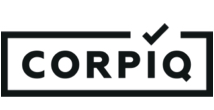How to Communicate with Your Tenants: 6 Mistakes to Avoid
#1 Using Many Communication Channels
When you communicate with your tenants, you should not use more than one communication channel per tenant. You should keep all your communications in one place, whether it is via email or text message.
Indeed, if your tenants are used to you communicating with them via text message, they might not check their email inbox for updates about the property or their unit. This means that they might see your message late or not see it at all.
#2 Being Unclear
When you communicate with your tenants, make sure that you use the right words and that you do not beat around the bush. Indeed, you might understand what you are trying to communicate, but your tenants might not; things may be perfectly clear to you, but not at all to them.
Thus, if you are trying to explain something complicated or important, make sure that you explain it well, and be mindful of the words you use. For example, if you use technical words, the average Joe might not understand.
You should tell your tenants to contact you if they have any questions. Stay available to clear up any confusion, it is important!
#3 Using the Wrong Tools
The key to having a good relationship with your tenants is communication. However, if you have many properties to manage and many messages to send, communicating efficiently might be difficult. Property management software is useful, especially during busy periods.
Every year, you must draft and send many letters and notices. Have you ever wished you could ease this process? Well, there are many tools available on the market to help you do just that. For example, property management software, like Proprio Expert, allows you to draft and send all your messages from a single platform through your tenants’ preferred communication channel.
#4 Not Using Your Answering Machine
Sometimes, it is a great idea to take advantage of your answering machine. Your tenants can leave messages voicing their questions or concerns, which gives you time to come up with a complete and appropriate answer. Of course, you must call them back in a timely manner (ideally within four hours). Even if you do not have an answer yet, this shows that you take their concerns seriously and that you are actively looking for a solution.
#5 Not Establishing Clear Building Rules
Clear building rules and regulations ensure a healthy landlord-tenant relationship. They will set up the landlord’s expectations. Here are some examples of building regulations that you could use for your leases:
TAPESTRY AND PAINTING
The tenant undertakes not to install wallpaper, nor to use dark or bright colored paint without the written authorization of the owner. Ceilings must retain their original color. The tenant is required to maintain the original condition of all unpainted surfaces.
DANGEROUS PRODUCTS AND STOVES
The tenant may not, without the written consent of the owner, use or keep in the accommodation a substance that constitutes or could constitute a fire or explosion risk and which could increase the owner’s insurance premiums. Without restricting the generality of the foregoing, the use of a coal, wood or other stove that uses flammable materials is only permitted outside the building and only at a minimum distance of 10 feet and it is absolutely prohibited on balconies. The tenant undertakes to respect municipal regulations to this effect.
BEHAVIOR
The tenant is required to behave in such a way as not to disturb the normal enjoyment of other tenants. The tenant is held, towards the owner and other tenants of the building, responsible for damages that may result from the violation of this obligation, even if this violation is the work of the people to whom the tenant gives access to the accommodation or to the property building. The owner may, in the event of serious harm following such a violation, request the termination of the lease and the eviction of the tenant and all occupants of the accommodation.
TOBACCO CONTROL ACT
Smoking is prohibited in all common areas of the building.
For a complete list of building regulations, please consult the CORPIQ website.
#6 Not Being Available
Property owners and managers must also stay available to their tenants. You should be reachable via many communication channels, such as email, text message, or telephone. Your tenants need to know that you care about their well-being and that you will respond quickly in case of emergency. This will influence your property’s credibility and your own!
In short, remember that your tenants are also your clients! Thus, it is important to stay available and open to them. Having a good relationship with your tenants will surely avoid many unpleasant situations.









